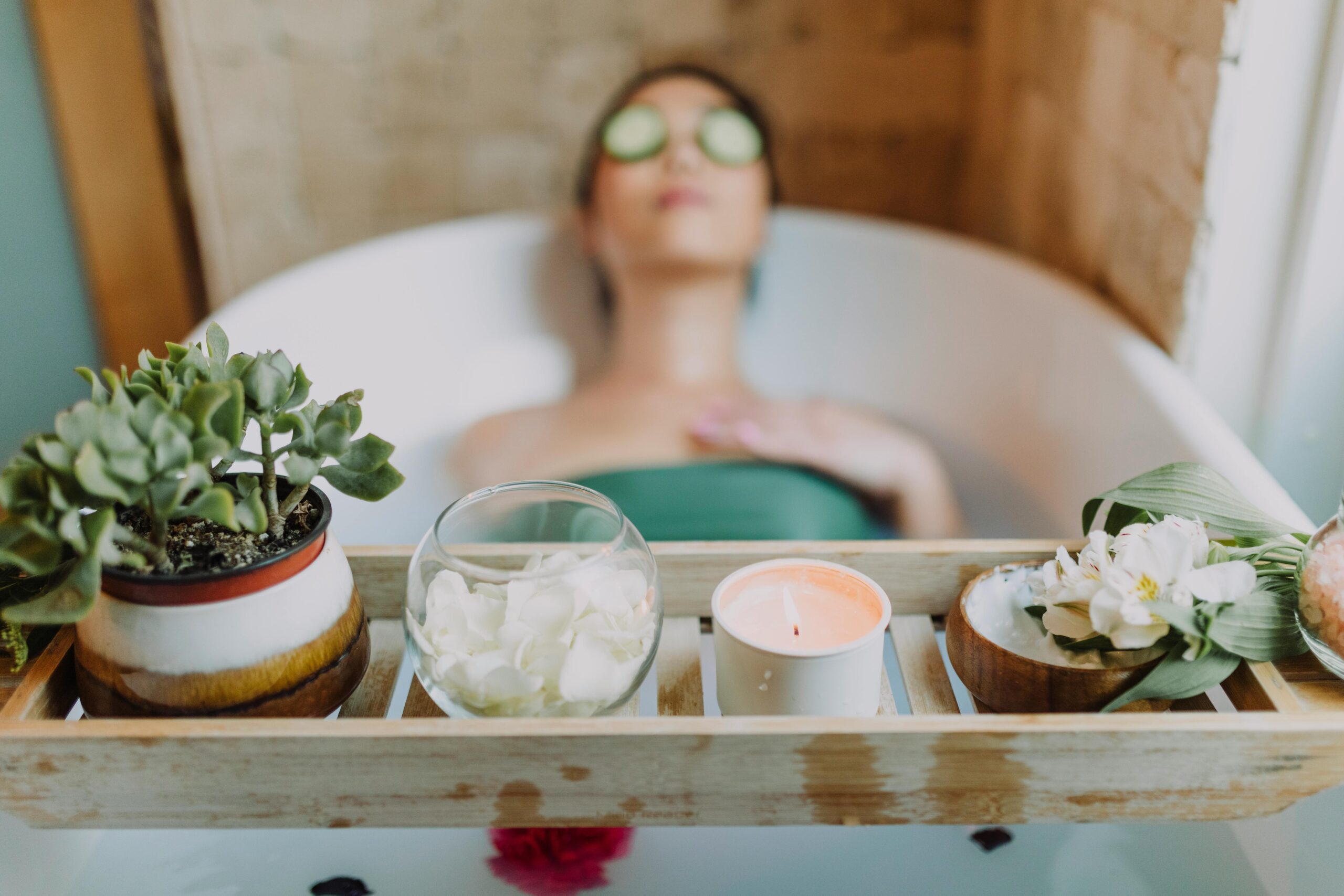Stress can feel overwhelming, affecting both our mental and physical health. Finding effective ways to manage stress is crucial for maintaining a balanced and peaceful life. Fortunately, there are many natural and DIY techniques that can help you achieve inner peace. This article explores practical and easy-to-implement methods for relieving stress, all from the comfort of your home.
1. Deep Breathing Exercises
Deep breathing is a simple yet powerful technique for reducing stress. It helps activate the parasympathetic nervous system, which counters the body’s stress response.
How to Practice Deep Breathing
- Find a Quiet Space: Sit or lie down in a comfortable position.
- Focus on Your Breath: Close your eyes and take a deep breath in through your nose, allowing your abdomen to expand.
- Exhale Slowly: Breathe out slowly through your mouth, letting go of any tension.
- Repeat: Continue this process for 5-10 minutes, focusing solely on your breath.
Regular practice can help lower stress levels, improve concentration, and enhance overall relaxation.
2. Aromatherapy
Aromatherapy uses essential oils to promote physical and emotional well-being. Different scents can have varying effects on your mood and stress levels.
Popular Essential Oils for Stress Relief
- Lavender: Known for its calming properties, lavender essential oil can help reduce anxiety and improve sleep.
- Chamomile: Chamomile has soothing effects and can help alleviate stress and promote relaxation.
- Peppermint: Peppermint oil is invigorating and can help clear the mind and relieve tension.
How to Use Essential Oils
- Diffuser: Add a few drops of essential oil to a diffuser to fill your space with calming scents.
- Topical Application: Dilute essential oil with a carrier oil (like coconut or almond oil) and apply to pulse points.
- Bath: Add a few drops of essential oil to your bath for a relaxing soak.
3. Herbal Teas
Herbal teas are a gentle way to promote relaxation and reduce stress. They contain natural compounds that can help soothe the mind and body.
Effective Herbal Teas for Stress Relief
- Chamomile Tea: Chamomile has been used for centuries to calm the nervous system and promote restful sleep.
- Peppermint Tea: Peppermint can help alleviate stress and digestive issues.
- Valerian Root Tea: Valerian root is known for its sedative properties and can aid in reducing anxiety and improving sleep quality.
How to Prepare Herbal Tea
- Boil Water: Bring water to a boil.
- Steep: Add the herbal tea bag or loose herbs to a cup and pour boiling water over it.
- Steep Time: Allow the tea to steep for 5-10 minutes.
- Enjoy: Sip slowly, focusing on the calming effects of the tea.
4. Meditation and Mindfulness
Meditation and mindfulness practices can help center your mind and reduce stress by encouraging a state of calm awareness.
Simple Meditation Techniques
- Guided Meditation: Use a meditation app or online resource to follow guided sessions that lead you through relaxation techniques.
- Mantra Meditation: Repeat a calming word or phrase to focus your mind and reduce stress.
- Mindfulness Meditation: Pay attention to the present moment without judgment, observing your thoughts and sensations.
How to Practice Mindfulness
- Choose a Quiet Space: Find a comfortable place where you won’t be disturbed.
- Focus on Your Breath: Pay attention to your breathing and let go of distractions.
- Observe: Notice any thoughts or sensations without reacting to them.
- Return to Breath: Gently bring your focus back to your breath if your mind wanders.
5. Physical Exercise
Regular physical activity is a proven way to manage stress and improve overall well-being. Exercise releases endorphins, which are natural mood lifters.
Effective Exercises for Stress Relief
- Walking: A brisk walk in nature can help clear your mind and reduce stress levels.
- Yoga: Yoga combines physical movement with breath control and meditation, promoting relaxation and flexibility.
- Stretching: Gentle stretching exercises can relieve muscle tension and improve circulation.
Tips for Using Exercise
- Find Activities You Enjoy: Choose exercises that you find enjoyable to ensure consistency.
- Set Realistic Goals: Start with short, manageable workouts and gradually increase intensity.
- Exercise Regularly: Aim for at least 30 minutes of moderate exercise most days of the week.
6. Creative Outlets
Engaging in creative activities can be a great way to manage stress and express yourself. Creative pursuits allow you to focus on something positive and distracting.
Creative Activities to Try
- Drawing or Painting: Use art as a form of expression and relaxation.
- Writing: Keep a journal or write creatively to explore your thoughts and emotions.
- Crafting: Engage in crafts like knitting, crocheting, or DIY projects to focus your mind and relieve stress.
How to Get Started
- Choose a Medium: Select a creative activity that interests you.
- Set Aside Time: Dedicate time each week to your creative pursuits.
- Enjoy the Process: Focus on the joy of creating rather than the outcome.
7. Body Scan
A body scan is a mindfulness practice that helps you connect with your body and release tension. It involves paying attention to different parts of your body, promoting relaxation.
How to Perform a Body Scan
- Lie Down Comfortably: Find a quiet space and lie down on your back.
- Focus on Your Breath: Take a few deep breaths to center yourself.
- Scan Your Body: Starting from your toes, focus on each part of your body, moving up to your head. Notice any sensations or tension.
- Release Tension: As you focus on each area, consciously relax and release any tightness you feel.
Benefits of Body Scanning
- Increased Awareness: Helps you become more aware of physical sensations and stress areas.
- Relaxation: Promotes relaxation by addressing and releasing physical tension.
- Mind-Body Connection: Enhances your connection with your body and its needs.
Conclusion
Managing stress naturally is a powerful way to achieve inner peace and improve overall well-being. By incorporating these DIY techniques into your daily routine, you can address stress holistically and enhance your quality of life. Whether through deep breathing, aromatherapy, or creative outlets, these methods offer practical solutions for finding calm and tranquility. Embrace these techniques to cultivate a more balanced and peaceful life.
FAQs
1. How often should I practice deep breathing exercises?
Aim to practice deep breathing exercises daily, ideally for 5-10 minutes. Regular practice helps maintain calm and reduce stress levels over time.
2. Can aromatherapy help with anxiety?
Yes, aromatherapy can help alleviate anxiety by promoting relaxation and calming the mind. Essential oils like lavender and chamomile are particularly effective for reducing anxiety.
3. What is the best time of day to drink herbal tea for stress relief?
Drinking herbal tea in the evening, especially before bed, can promote relaxation and improve sleep quality. However, it can also be beneficial any time you need a calming effect.
4. How long should I meditate each day to see benefits?
Start with 5-10 minutes of meditation each day. Gradually increase the duration as you become more comfortable with the practice. Consistency is key to experiencing the benefits of meditation.
5. Is it necessary to join a gym to benefit from physical exercise?
No, you don’t need to join a gym to benefit from physical exercise. Simple activities like walking, yoga, or home workouts can be effective in managing stress and improving overall health.
6. How can I incorporate creative activities into a busy schedule?
Find small pockets of time in your daily routine to engage in creative activities. Even 10-15 minutes a day can be beneficial. Choose activities that fit your schedule and bring you joy.



